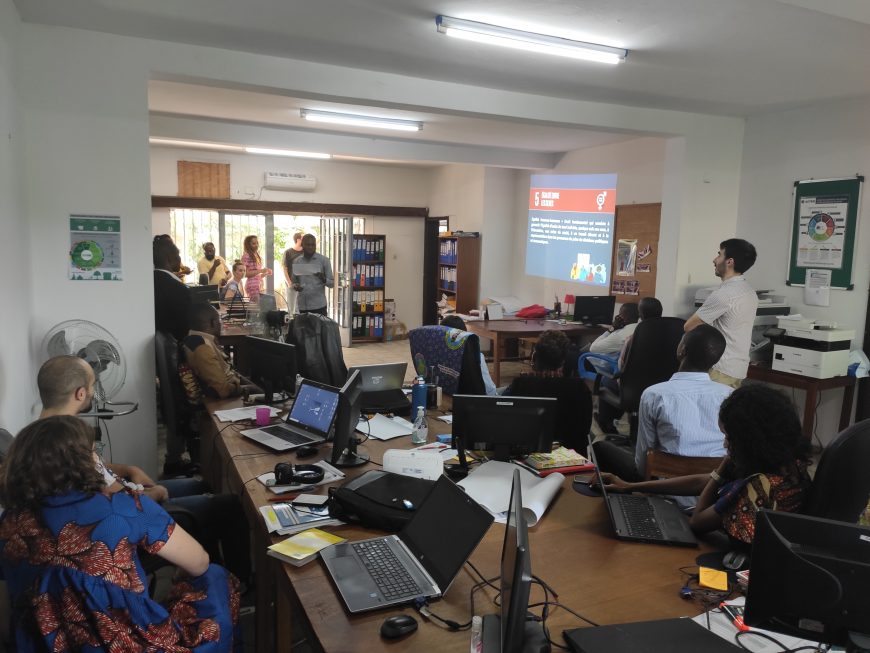On the occasion of the International Women's Rights Day, ACTED DRC organizes a series of actions to raise awareness on gender equality.
Girls and women: marginalized populations vulnerable to gender-based violence
These cases of sexual exploitation and abuse are particularly common when communities are shaken by armed conflict, natural disasters, epidemic waves and chronic poverty. These structural and situational causes provide fertile ground for violations of the human rights of women and girls.
The lack of respect for the physical integrity of women and girls is compounded by a set of socio-cultural considerations that keep them in gendered, unfavourable social roles and legitimize their marginalization. Between the unequal distribution of unpaid domestic work or the denial of resources, opportunities or services (22.3% of girls do not have access to school), the discrimination they face is multidimensional.
As such, the Humanitarian Response Plan (HRP) 2020 estimates the number of women in need in DRC at 7.9 million.

A mission committed to the promotion of gender equality
In response to the sexual, physical and symbolic violence women face, ACTED seeks to integrate gender dynamics into its humanitarian interventions. Through this approach, ACTED implements inclusive and effective responses that ensure the empowerment of all and enhance the impact of its humanitarian strategies and interventions. Beyond mainstreaming gender issues in all its activities, ACTED carries out projects directly aimed at supporting the fight against gender-based violence. In a 9-month prevention project conducted in the provinces of Sud-Ubangi and Bas-Uélé, ACTED has reached more than 50,000 people through the organization of awareness campaigns, the setting up of prevention and management mechanisms for cases of gender-based sexual violence, the training of focal points, the legal support and the economic reintegration of survivors of violence.
Gender-sensitive teams
| An awareness-raising workshop on gender equality was organized on the occasion of International Women’s Rights Day in Kinshasa, as well as at the Gbadolite base in the north of the country. |
Usually, the day of March 8 in the DRC is a day of demonstration of African culture during which we wear our March 8 loincloths. This time, it was more access to reflections on women's rights. These exchanges of experiences and ideas allow us to learn more about our colleagues. It was really rich!
After introducing the workshop with the “Race for Privileges”, a participatory game that allows to account for existing inequalities between men and women, the teams divided into groups to discuss ways to improve gender equality and fight against gender-based violence. The following ideas were put forward: distributing domestic responsibilities, denouncing sexism and harassment, demanding an egalitarian professional culture, promoting egalitarian education, encouraging citizen participation for parity-based political institutions, etc. While the objective of this session was not to convince but to encourage positions to be taken and question preconceptions, some groups found concrete solutions to fight discrimination, particularly at work.
Whether in its activities or in its working culture, ACTED DRC wants to be an actor in the achievement of the Sustainable Development Objective n°5 (SDO 5) “Gender Equality”.